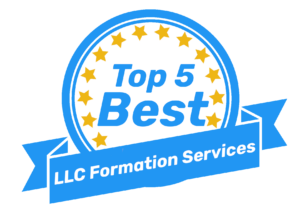We're supported by our users. We may earn a commission if you make a purchase from our links
How to Start a Business in Allen Texas
Are you ready to start a business of your own? If so, Allen, Texas is a great place to do so. With its large population and the lack of personal and corporate income taxes, there’s no wonder why so many people attempt to become entrepreneurs in the Lonestar state. The following twelve steps will teach you how to start a business in Allen, Texas.
Start your Texas Business for $0 (plus state fees)
Get Help Starting your Business from ZenBusiness
Start your Texas business with the #1 rated business formation service ZenBusiness, starting at $0 plus state fees.
ZenBusiness vs LegalZoom Comparison12 Steps to Starting a Business in Allen, Texas:
- Step 1: Research and Plan Your Business
- Step 2:Choose a Business Structure
- Step 3: Create a Business Name
- Step 4: Register Your Business
- Step 5: Obtain an EIN
- Step 6: Complete Texas State Tax Regulations
- Step 7: Apply for Business Licenses and Permits
- Step 8: Open a Business Bank Account
- Step 9: Setup Credit Card Processing
- Step 10: Establish an Accounting System
- Step 11: Get Business Insurance
- Step 12: Hire Employees and Setup Payroll

Step 1: Research and Plan Your Business
At this point, you probably already have a general idea of what type of business you would like to start. Are there other businesses like this in the area? Do some research and find out how many similar businesses are in Allen, Texas and how much business they receive. You will need a technique to make your business stand out from the others. Once you've conducted some preliminary research, you'll want to make a business plan. This can be as simple as a 1-3 page outline style document or as detailed as 50+ page document with a large amount of research. For more detailed guidance, read our guide on how to create a successful business plan.
Step 2:Choose a Business Structure
Once you know your business and have a plan, it's time to choose your business structure. To start a business in Allen, TX you need to choose between one of the 4 main business structures: Limited Liability Company (LLC), Partnership, Sole Proprietorship, and Corporation. Below is a brief introduction to each business structure. For a more detailed guide, you can read our article on how to choose a business structure.
Limited Liability Company (LLC)
This structure is one of the most popular among small business owners. LLCs have become a go-to choice for many small business owners as they combine the pass-through tax benefits of sole proprietorships and partnerships with the personal liability protection that corporations provide. LLCs are more simple to set up and maintain than a corporation and provide flexibility when it comes to how they are taxed. You can learn more about LLCs here.
Corporation
Corporations are an older type of business structure that is recognized as separate from it's owners. Corporations provide liability protection and can more easily raise funds by allowing investors to purchase shares of the company and get a piece of the profits. While corporations provide limited liability protection for their owners, they are required to follow more strict management structure and regulations to maintain good standing. By default, corporations are also subject to "double taxation" as they must first pay corporation taxes on their profits after which their owners (known as shareholders) can receive profits that are also subject to personal income tax.
Sole Proprietorship
A sole proprietorship is one of the easiest businesses to open. These structures have only one owner, and they typically don't require a formal registration to start. However, this type of business model includes the owner and the business as a single entity. This means that if someone sues the business or you fall behind on payments, you will be held liable and may be required to pay those expenses out of your personal income and assets. You are also limited to using a business name that includes your personal name. If you wish to use a business name that does not include the owner's name you'll be required to obtain a DBA or "Doing Business As" name, which is formally referred to as an "Assumed Name" in Texas.
Partnership
As the name implies, a partnership business structure is owned by 2 or more people. In this business model, owners have unlimited liability. This puts them at greater risk if something goes wrong. In a partnership, the business itself will not owe any taxes. Instead, each partner will be required to pay taxes on their personal income tax returns. Similar to a sole proprietorship, a general partnership is required to use a business name that includes the last names of the owners, unless they file for a Texas DBA.
Step 3: Create a Business Name
This can be a fun but stressful part of starting a business in Allen, Texas. Your business name will give customers their first impression of your products and services. A catchy name can set you apart from others, but a bad name can haunt you for the life of your business.
Remember, it's not easy to change a business name once it has been registered. When choosing your name, it’s best to go with something that customers will be able to remember. You also want to make it something they can easily search for and find on the internet.
Resource: How to Come up with a Business Name Guide
Step 4: Register Your Business
Now that you have come up with the perfect name, it's time to register your business. Before you register a business in Allen, Texas, you'll need to consider the business structure you chose. Each structure will require different steps for registration.
Register a Texas LLC
To legally form an LLC in Texas you'll need to file Form 205 Certificate of Formation - Limited Liability Company with the Texas Secretary of State's office. This filing can be completed online or via mail. The state of Texas imposes a $300 filing fee to complete this filing. For a step-by-step guide, visit our 5 steps to starting an LLC in Texas article.
Are you Considering Using an LLC Formation Service?

The Top 5 Best LLC Formation Services
We’ve reviewed the best LLC formation services and ranked the top 5. Find an LLC formation services that works best for you.
View the Top 5Best LLC Services
Register a Corporation in Texas
Forming a Corporation in Texas is done by filing Form 201 Certificate of Formation - For-Profit Corporation. The filing fee for a corporation is $300. You will also want to create a corporate bylaws document and assign a Texas Registered Agent to your business. You can learn the detailed steps needed to form a Texas Corporation by following our guide.
Register a Sole Proprietorship in Texas
Starting a sole proprietorship in Texas is cheap and easy. You won't need to file any papers with the state; however, you'll want to register your business name unless you plan on calling your business by your own name. To do this you'll need to file a Texas DBA, also referred as an "Assumed Name" with your local county clerk's office. To learn more visit our How to Get a DBA in Texas guide.
Register a Partnership in Texas
Starting a partnership in Texas is fairly simple. You are not required to file any documents or registration papers unless both partners' last names are not included in the business name. If that's the case, you will need to file an Assumed Name Certificate with the county clerk. Don't forget to draw up a business contract between your partner and yourself in case of future disputes.
Step 5: Obtain an EIN
An EIN is very similar to your social security number and can be used in its place. It is free for businesses to obtain an EIN, and the process is easy. If you are registering a multi-member LLC, a Corporation or a Partnership, you'll need an EIN. However, all businesses can obtain one, and it's recommended.
Resource: What is an EIN and How to Apply for One
Step 6: Complete Texas State Tax Registrations
Now that you have complied with federal regulations, it's time to make sure you are in compliance with all state regulations. If you make retail sales, you'll need to collect and remit sales tax. In addition, if you have employees, you will need to register.
Texas State Registration Resources:
Step 7: Apply for Allen Texas Business Licenses and Permits
There is no general business license issued at the state level in Texas, however, you'll still need to ensure that you comply with other federal, state, and local licensing and permitting requirements. Depending on the nature of your business you may require building permits, signage permits or other professional licenses to legally operate.
- Federal Business Licenses and Permits
- State of Texas Business Licenses and Permits
- City of Allen Texas Business Licenses and Permits
Since the licensing and permitting process can be complex and is highly dependent upon the specific nature of your business, it's highly recommended that you consider using a professional business license research service to ensure that you have received all your required permits.
Step 8: Open a Business Bank Account
The next important step in starting a business in Allen, Texas is opening a business-specific bank account. Since certain business structures provide limited liability and consider you a separate entity from your business, it's important to keep your personal and business assets separate. Not only will this make accounting less of a hassle, but it will also keep your personal assets from being included if anything goes wrong such as the company being sued or being unable to cover business debts.
Resource: How to Open a Business Bank Account
Step 9: Setup Credit Card Processing
We live in a digital age, and most people no longer carry cash. Having the ability to accept debit and credit cards can make a huge difference in the success of your business. You'll find there are many processing companies from which to choose, including Merchant One, Clover, Square and PayPal.
Resource: How to Accept Credit Card Payments
Step 10: Establish an Accounting System
Like with personal checking, it's important to keep track of your business expenses and profits. This will help you understand where your business is excelling and where it needs improvement. It will also assist you in making an appropriate budget.
Resrouce: Small Business Accounting 101 Guide
Step 11: Get Business Insurance
Business insurance is very important. Just as in your personal life, bad things happen. When they do, you need business insurance to make sure you're covered. The following are six types of business insurances:
- General Liability Insurance
- Product Liability Insurance
- Professional Liability Insurance
- Commercial Property Insurance
- Home-based Business Insurance
- Business Owner’s Policy
Step 12: Hire Employees and Setup Payroll
Most likely, you will need at least one employee in the beginning. Later, you may need more. No matter how many employees you have, you'll need to set up a payroll account. This will help you keep track of how many hours each employee works, how much you owe each of them, and help you hold taxes out of their checks.

